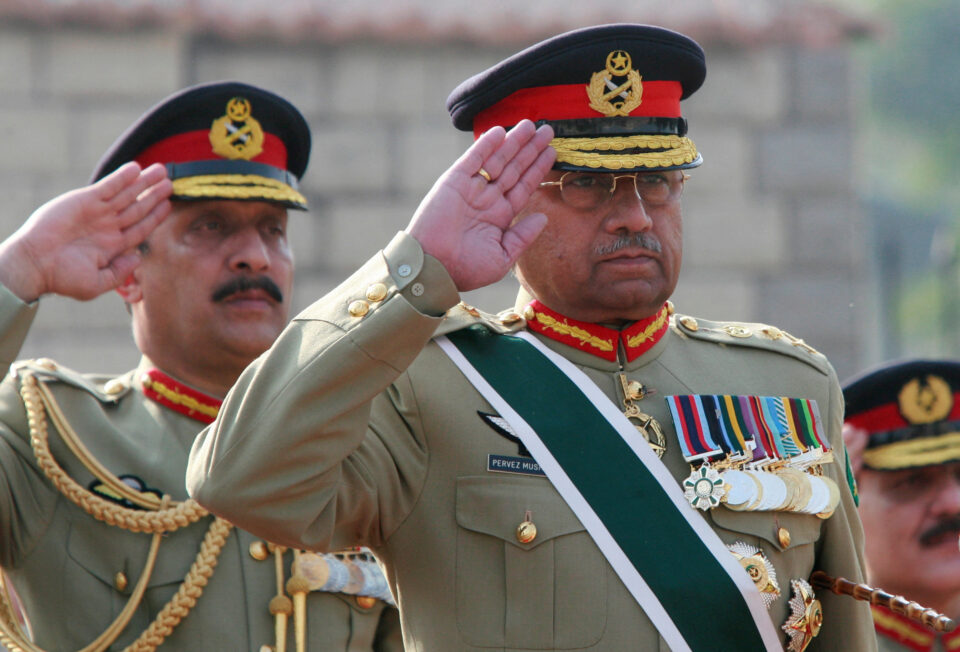ISLAMABAD/DUBAI, Feb 5 — Pakistani former President Pervez Musharraf died on Sunday following a prolonged illness at a hospital in Dubai, after years in self-imposed exile.
Pakistan’s military and the country’s mission in the United Arab Emirates announced the death of the former army chief, 79, who was pushed from power in 2008.
“I can confirm that he passed away this morning,” Shazia Siraj, spokesperson for Pakistan’s consulate in Dubai and embassy in Abu Dhabi, told Reuters.
Prime Minister Shehbaz Sharif, President Arif Alvi and the chiefs of Pakistan’s army, navy and air force each expressed condolences on his death.
A special flight will be made to Dubai on Monday to bring Musharraf’s body back to Pakistan for burial, local TV channel Geo News reported.
The former four-star general, who seized power in a bloodless coup in 1999, oversaw rapid economic growth and attempted to usher in socially liberal values in the conservative Muslim country.
Musharraf enjoyed strong support for many years, his greatest threat was al Qaeda and other militant Islamists who tried to kill him at least three times.
But his heavy-handed use of the military to quell dissent as well as his continued backing of the United States in its fight against al Qaeda and the Afghan Taliban ultimately led to his downfall.
“He is called a military dictator, but there has never been a stronger democratic system than that under him,” said former close Musharraf aide Fawad Chaudhry, a leader of former Prime Minister Imran Khan’s party.
“He gave Pakistan free media and he stressed on the diversity of opinion in Pakistan,” Chaudhry said in a video message.
History will always remember him,” he said. “Pervez Musharraf, we will miss you.”
Musharraf joined what Washington called its ‘war on terror’ after the September 11, 2001, attacks on the United States. Pakistan provided U.S. forces ground and air access to landlocked Afghanistan to chase down the al Qaeda militants identified as being behind the plot.
The support was contrary to Pakistan’s longstanding policy of support for the Taliban, who then as now controlled neighbouring Afghanistan. This made Musharraf a target for militants in Pakistan as well as caused him to lose support among conservative elements in Pakistan.
The Tehreek-e-Taliban Pakistan, an umbrella group of Pakistani militant organisations formed in reaction to Musharraf’s crackdown on extremist elements, celebrated his death, criticising his policy of siding with the West.
“This was the infamous army chief who sold off the country’s honour and respect,” it said in a statement. The group, which has launched a fresh spate of attacks across Pakistan in recent days, warned the current military leadership against following Musharraf’s policies.
Allowed abroad for medical treatment even as he faced a treason case in Pakistan, Musharraf last flew to Dubai in 2016.
Following are reactions to his death from former aides and analysts:
Fawad Chaudhry, former Musharraf aide, currently a senior leader of former prime minister Imran Khan’s party:
“He is called a military dictator, but there has never been a stronger democratic system than that under him… Pervez Musharraf led Pakistan at a very difficult time, and Pakistanis believe the era of his reign was one of the best in Pakistan’s history.”
Shashi Tharoor, Indian politician, said on Twitter:
“Once an implacable foe of India, he became a real force for peace 2002-2007. I met him annually in those days at the UN & found him smart, engaging & clear in his strategic thinking. RIP”
Mosharraf Zaidi, chief executive officer of Tabadlad, an Islamabad-based think tank:
“The most important legacy Gen. Musharraf leaves behind predates his time as president. It was his planning and execution of the Kargil War (against India) – against the judgement of military officers that preceded him and initially unbeknownst to the elected leaders at the time. The 1999 Kargil War permanently altered … Pakistan.”
— Reuters





